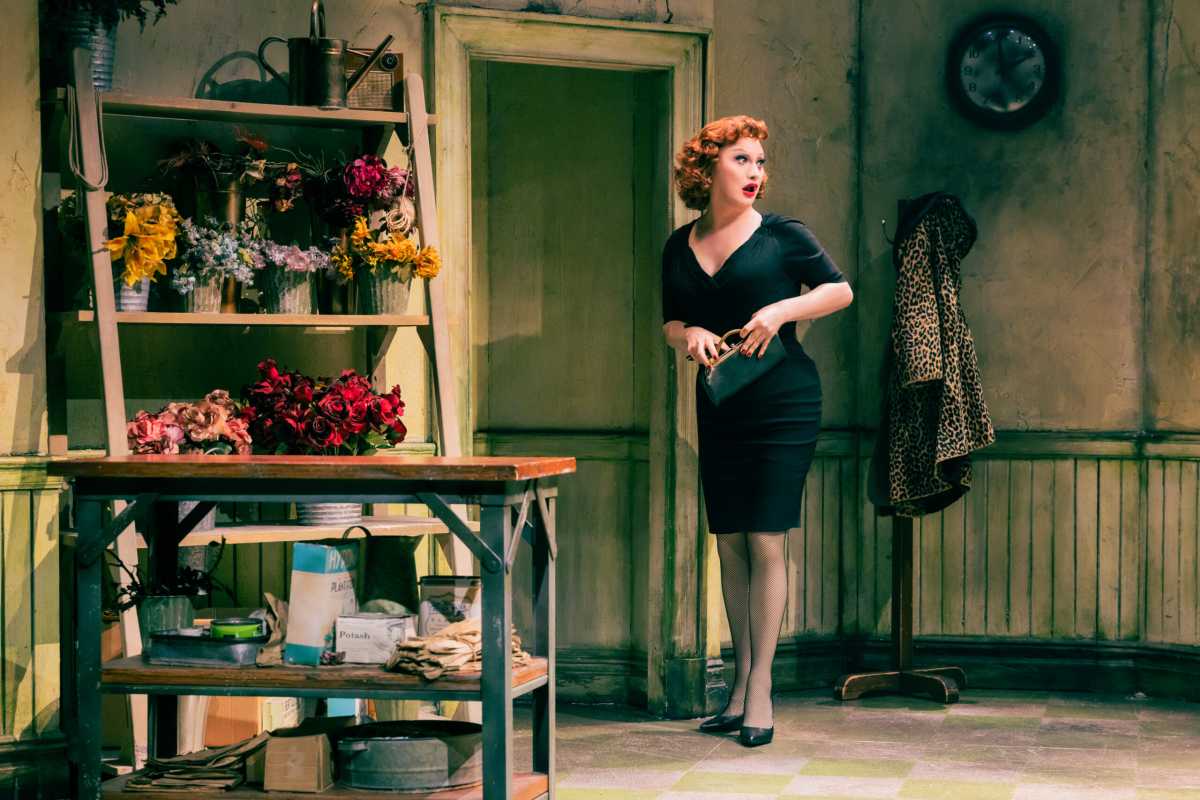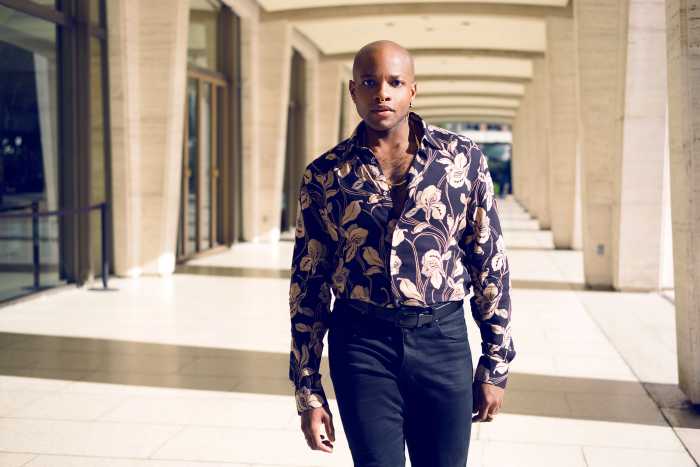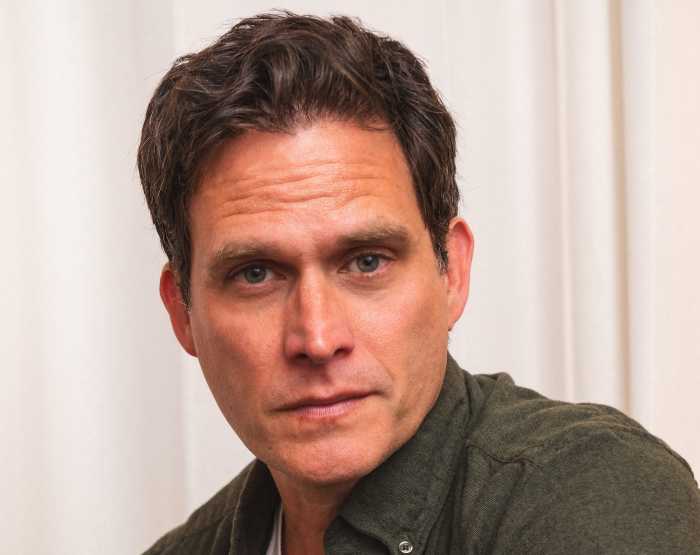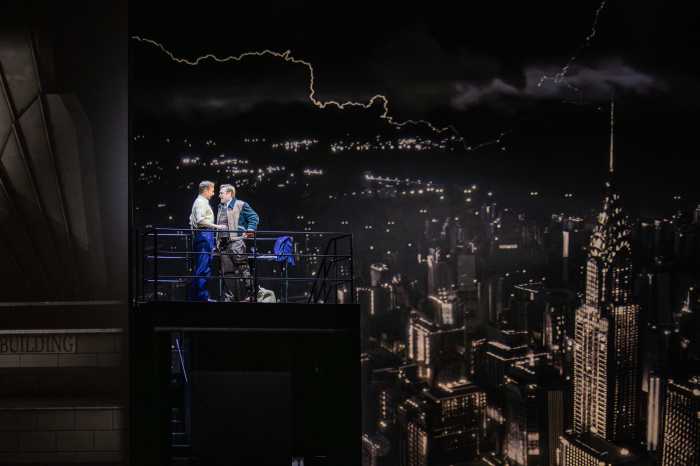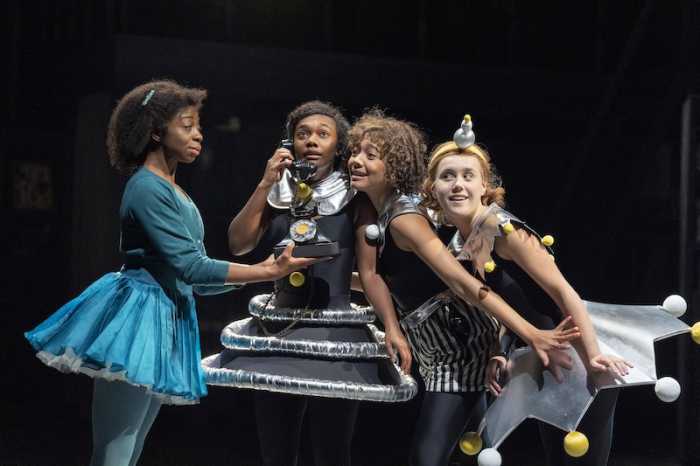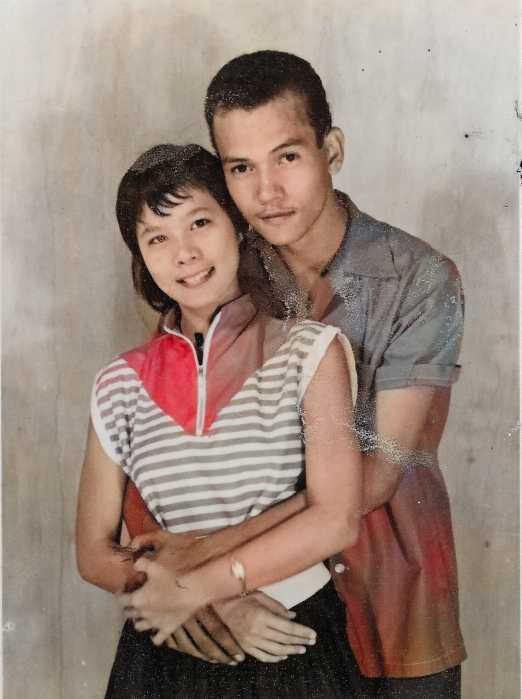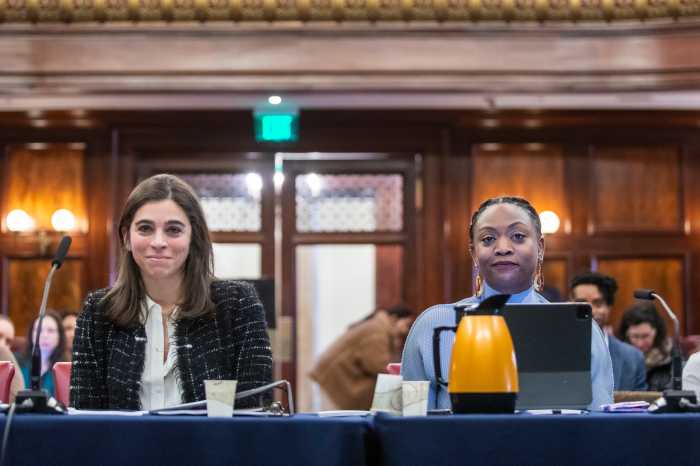Musical theatre darling and two-time Drag Race winner Jinkx Monsoon has returned to the New York City stage to take on the role of Audrey in the off-Broadway production of “Little Shop of Horrors,” which started April 2. After her stint as Mama Morton in Chicago last year, Monsoon is sure to fill seats at The West Side Theater starring opposite Corbin Bleu as Seymour. Gay City News had the chance to chat with Jinkx about the queer undertones in the cult classic, her underdog character arc, and how she will make Audrey her own.
Can you tell me why you think “Little Shop of Horrors” is an inherently queer story?
First of all, the whole thing takes place in Skid Row. It’s all the people who are cast out of society in other circumstances. These are people who live here because it’s their last option. I think queer people can identify with being pushed to the outskirts of society. I think queer people can identify with the tragic beauty of Audrey — this very sensitive, sweet, caring, innocent person who’s just being trampled down by life. I think queer people always identify with that, kind of like the tragedy of the Femme Fatale. And, and then there’s something about the plant that is just inherently queer. I think the voice of the plant is so important because, you know, essentially “Little Shop of Horrors” is an underdog story. It’s not just about Seymour and not just about Audrey, but the plant’s kind of an underdog too! (Laughs)
How does it feel to be the first drag performer to take on the role of Audrey in a major production of “Little Shop?”
I feel like it’s a big affirmation just because I’ve known that I and other drag performers… are drag performers, yes, but also all the other things that we are. And this is what I’ve been saying, from the beginning of my notoriety essentially, is that we drag queens do what we do in drag. That’s just how we do it, but doesn’t make it any less what we’re doing. Bianca Del Rio is no less a stand-up comedian than any other stand-up comedian. Yet, we tend to refer to drag queens who do these things as “she’s a drag queen stand-up comic.” We use “drag queen” as a way of qualifying things. I think because there’s inherited stigma and there’s inherited gender phobia, we’ve been conditioned to kind of think of drag as a subsect of entertainment by the mainstream. Nowadays. That’s changing rapidly in a way that I never even thought I’d see in my own lifetime…And I think, with this casting in this show, in this iteration of “Little Shop” with myself [as Audrey] and Corbin Bleu [as Seymour] it gets to be even more a story of disenfranchised underdogs who find each other in the unlikeliest of places.
Why do you play the role of Audrey under the name Jinkx Monsoon rather than your government name?
Well, a long time ago, I realized every character I create, no matter what the show is, no matter what the gender or age of the character, every character I create is essentially no different from having created Jinkx. I go through all the same steps every time I create a character. Jinkx is just someone I’ve been playing for a long, long, long time. But I kind of think that when I’m playing a female role, a role that’s meant to be or was written to be a cis female, I almost think it’s like I step into Jinkx, and Jinkx steps into the character. The human being who created Jinkx identifies as a trans feminine non-binary human being. Jinks the character is just a single mother. [She] is this female posing as a drag queen. She’s hard-working and wants to be a starlet. It’s kind of like when I’m playing a cis female I’m almost like, “okay Jinkx, here’s your time to shine, play this character.” I used to try really hard to draw that line between Jinkx the artist and Jinkx the character. [But] she’s part of me. It’s not Jekyll and Hyde. It’s kind of like, we both share this body and we take turns when it’s appropriate.
How are you planning to make Audrey your own?
I don’t want to sound too up my own ass, but I really enjoy what is known as text analysis, where you use the script and only the script to find the character. Now, that said, I can’t unsee Ellen Greene’s performance [of Audrey]. I was raised with her playing Audrey. That is where she lives for us. So there’s no way of getting rid of that. But if I start with the text, then it’s more about finding what’s true for her without that influence, and then letting that influence kind of inform moments, but not dictate the character. As a drag performer, I feel like I get this special opportunity with roles like this. I feel like people will watch a drag queen play a performance that’s a bit of an homage because all drag is referential. I’m one of the people who do get to kind of give the nod to the original performance because I’m so different from anyone who’s played this role before. I’m the first trans-feminine drag performer to play this role in this context. And with that, I get to kind of start all over again, like, I get to go back to the drawing board. And if it wants to be a little bit of a nod to the performances I grew up with, people aren’t like, shocked by that. So it’s almost like having absolute freedom to create my character from scratch with set parameters, which I love. I have the challenge of creating something new and still delivering what needs to be delivered for this specific production. And it’s been a lot of fun figuring that out.
What speaks to you about the role of Audrey as a performer?
There are two things. One is that she’s so fabulous. Like the circumstances we’ve mentioned, you know, she’s in a toxic relationship. She’s living on Skid Row. She’s on the outskirts of society, but gosh, is she gorgeous! And she’s got great style, and she’s got all this personality. She’s the life of this failing flower shop. She’s the spirit and the energy of the flower shop. And then she is the moral center of the show. The second thing that really, personally resonates with me is she reminded me of my mother. That joyful, bubbly, infectious personality in spite of terrible consequences. Like that flower growing in the muck that is like a beautiful daisy growing in a trash pile. That’s Audrey, and that’s what I want to bring to this.
Can you talk about how your time as Mama Morton in “Chicago” last year has impacted your journey moving forward in your Broadway career?
I feel like I became a better actor from just having been in that show. And at the end of the day, it was a financial objective success. So basically, I have created a mantra of reminding myself that this was the big thing I was working towards in life and it happened and it went great. And so to second guess myself now would be really silly, because everyone already told me, “You did it kid!” So I got to go into “Little Shop” with a whole new amount of confidence. I’ve been trusted and respected in this position since day one. I don’t second-guess myself anymore.
Can you tell me about the first time you saw “Little Shop” when you were a kid?
This is what I love about “Little Shop.” My family is not a family who enjoys musical theater. I’m like the one. Me and my aunt enjoy musical theater and basically everyone else in my family is not your typical Broadway goers. But “Little Shop” has always been the one show my entire family can agree on. We watched [the movie] over and over when I was a kid. It was like my grandma’s favorite musical. It was my mom’s favorite musical and all of these people in my life who didn’t like musicals like this one. So I learned at a very early age, “This is one musical I can start singing this and everyone’s like, ‘Yeah, sing it!’ rather than ‘Oh, my God, not this again.’” And I think that remains true.
After she wraps up as Audrey, Monsoon will step back into her role as Mama Morton in “Chicago” for a 20-show run from June 27 to July 12. Tickets for “Little Shop of Horror” can be found at littleshopnyc.com.

